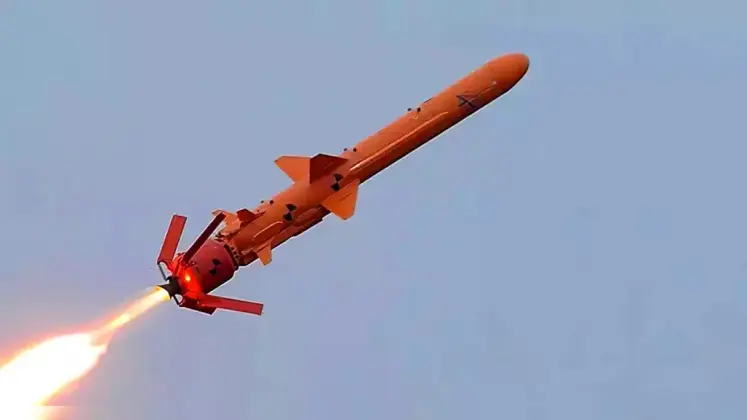News
Ukraine Takes Out Key Russian Electronics Factory in Cruise Missile Strike
The Ukrainian Armed Forces have successfully targeted a major factory producing electronic connectors in Russia, marking a significant escalation in attacks on the country’s industrial base. Ukrainian sources claimed that the attack on the Elektrodetal Plant in the Bryansk region was carried out using indigenous R-360 Neptune cruise missiles on September 29, although successful attacks by foreign systems have reportedly often been attributed to indigenous ones to increase their prestige. Ukraine has received considerable support from Western advisors on the ground and intelligence collection assets in the air and in space to launch attacks deep into Russia, as well as a wide range of missile types such as the British Storm Shadow and American ATACMS. Commenting on the attacks the Ukrainian Navy reported: “We are adjusting the work of the Russian defense factories… At night, our ‘Neptune’ successfully struck the Russian Karachevsky ‘Electrodetal’ plant. Another link in the enemy’s supply chain is down.”

The Ukrainian attack was reported to have seen four cruise missiles strike their target approximately 240 kilometres away. According to a report by the Ukrainian Armed Forces General Staff, the products of the factory “are used in aerospace, electronics, instrument engineering, and other industries. These include connectors for printed circuit boards, military equipment, aircraft, antennas, base stations, and other systems, as well as components for various measuring instruments.” The plant “manufactures various electrical connectors for military and general industrial applications, including low-frequency, high-frequency, and combined connectors,” it added. Russia has notably previously launched strikes to target multiple facilities contributing to cruise missile and attack drone production in Ukraine, as these continue to pose a threat to its military facilities and key civilian and military infrastructure. The ability to cause such damage to the Russian economy and industrial base by proxy without escalating to full scale hostilities has made support for Ukrainian strike capabilities a highly popular policy among NATO members.












